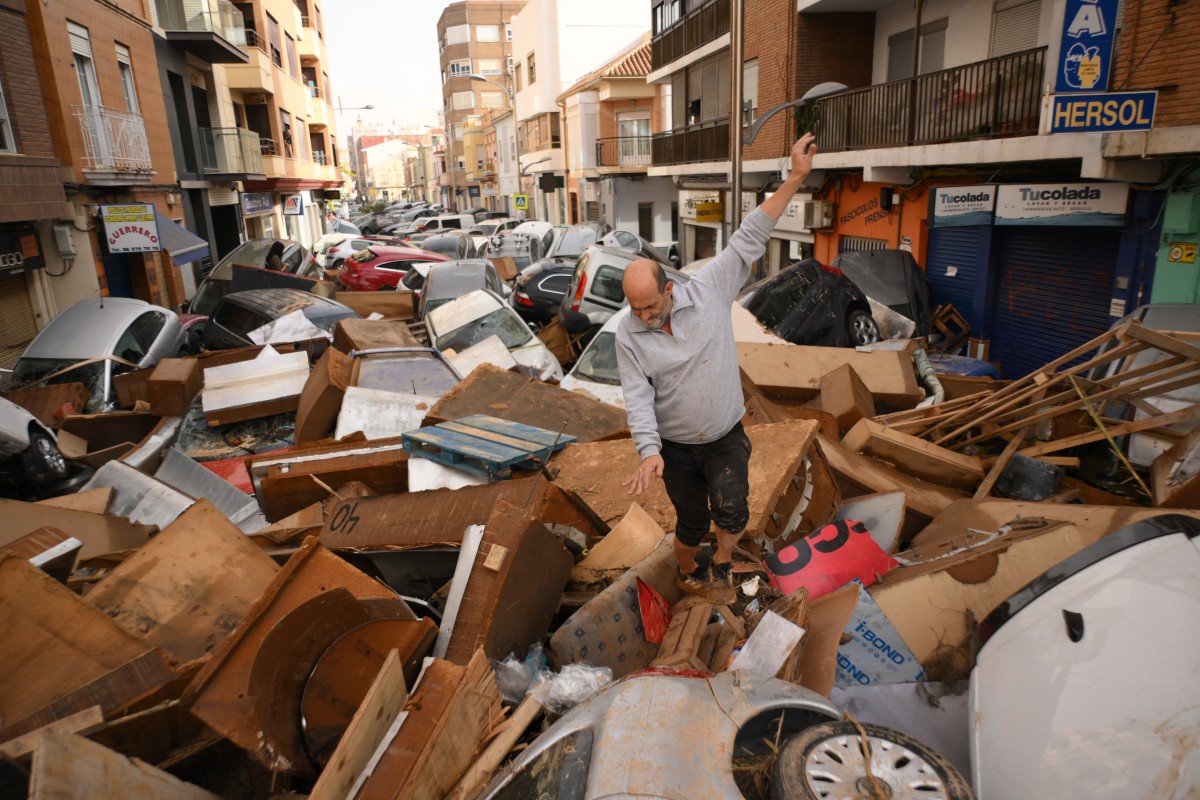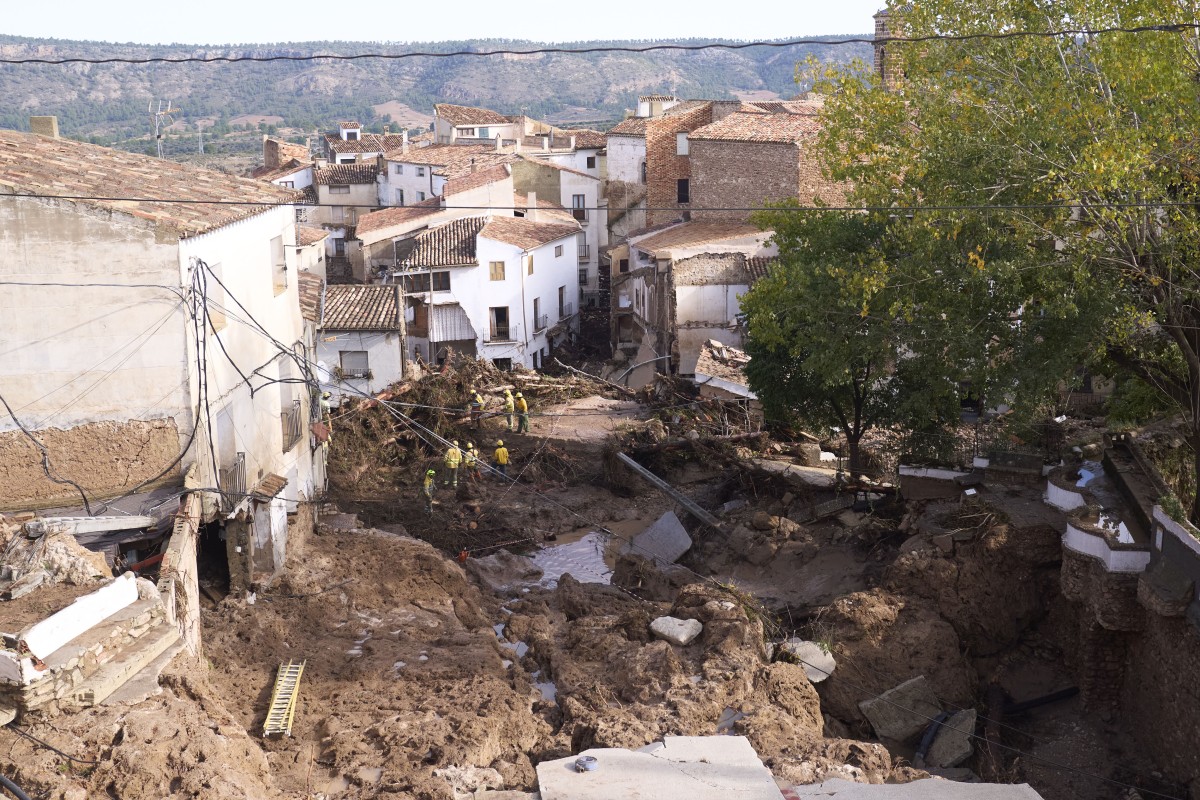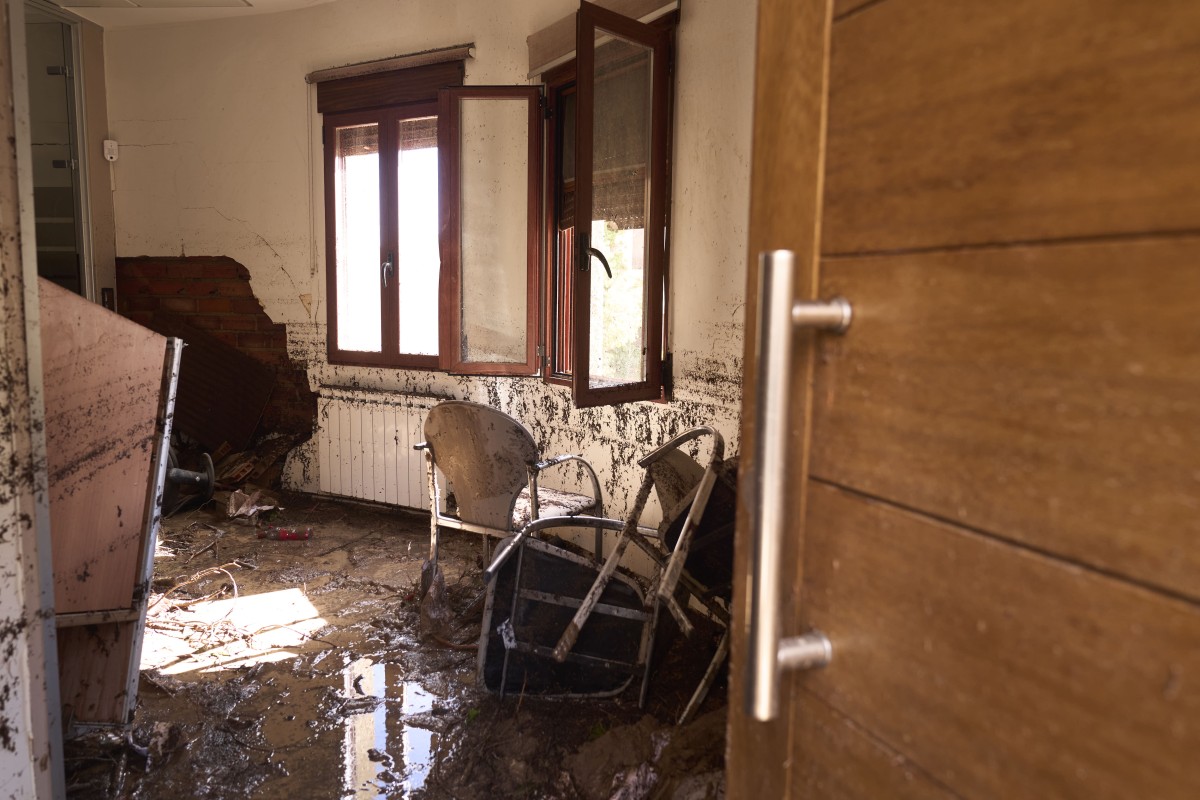
The Insurance Industry Association (UNESPA) has compiled a document addressing frequently asked questions in the wake of the devastating storm that has impacted the southeast of Spain and is now moving northwards towards Catalonia as it exits the country. UNESPA has highlighted that in the province of Valencia – the area most severely affected by the floods – the insured rate stands at 77.4%.
Are damages caused by the storm covered? Who compensates me?
Yes, the damages caused by the storm, referred to as "DANA" in Spanish or "cold drop" in English, are covered for both individuals and insured goods. Compensation for the damages will be provided by insurers, the Insurance Compensation Consortium (CCS) or Agroseguro, depending on the nature of the claim. The cold drop may have impacted individuals (resulting in fatalities and injuries), property (including vehicles), as well as crops and livestock.
These three institutions – insurance companies, CCS and Agroseguro – have established a website called Naturalmente Protegidos, which provides further details on this topic. In this article, you will find frequently asked questions that explain the roles of each organisation concerning the coverage of natural events.
What insurance is involved in this type of circumstances?
The heavy rainfall has resulted in fatalities and injuries, as well as damage to property, vehicles, crops and livestock. The following insurance policies will come into effect as a result of the storm:
- Life insurance: If the deceased had life insurance, the Insurance Compensation Consortium (CCS) will compensate the beneficiaries designated in the contract.
- Accident insurance: If an injured person has accident insurance, the Insurance Compensation Consortium (CCS) will provide compensation to them.
- Home insurance: It covers damage to the property itself (such as walls, doors, windows, ceilings, floors and structural elements) as well as its contents, including furniture, electrical appliances and household items. Owners of rented properties may also receive compensation for loss of rent, subject to the terms outlined in the contract (such as amount and duration). Additionally, coverage may extend to cases where the property becomes uninhabitable for its owners (see specific question below in this FAQ).
- Community of owners insurance: It covers damage to the common areas of the building, including the entrance hall, stairways, lifts, utility rooms, gardens and swimming pool. Coverage extends to both the building itself (such as walls, doors, windows, ceilings, floors and structural elements) and its contents, including entrance hall furniture and decorations in communal areas.
- Commercial, business and industrial insurance: It covers damage to the premises' contents, including walls, doors, windows and furniture. Additionally, if the policy includes coverage for loss of profits due to flooding through the Insurance Compensation Consortium (CCS), the insured business may be compensated for business interruption, based on the terms specified in the contract (such as amount and duration) due to material damage. Similarly, owners of rented properties, such as commercial premises or industrial warehouses, may receive compensation for loss of income, subject to the conditions outlined in the contract (amount, duration, etc.), if they have taken out this coverage.
- Car insurance: All car insurance policies include coverage against extraordinary risks. Therefore, any vehicle owners whose cars have been swept away by floods or damaged by winds exceeding 120 km/h will be compensated by the Insurance Compensation Consortium (CCS). Damage to vehicle bodywork and windows caused by hail will be covered by the insurance company if the policy includes coverage for glass breakage or own damage (covering both glass and bodywork).
- Agricultural insurance: Agricultural insurance covers damage caused by the cold drop to insured crops, livestock (such as poultry and cattle) and agricultural facilities.

Does the area have to be declared a "disaster area" to receive compensation from the Insurance Compensation Consortium?
The Insurance Compensation Consortium (CCS) is a unique organisation in Europe that, among other functions, provides insured individuals with the reassurance of receiving compensation for damage caused by catastrophes. Its role is crucial in the event of major losses, whether human-made, such as terrorism, or natural disasters, such as floods, storms or earthquakes.
When a natural disaster occurs, many affected policyholders may wonder: does the area need to be officially classified as an area severely affected by civil protection risks (previously termed a "catastrophic area") for the CCS to provide coverage?
The answer is "NO". There is no requirement for an area to be declared a catastrophe area, nor is it necessary to wait for such a declaration to begin taking the necessary steps. Insurance companies and the CCS are committed to assisting any insured person or property that has been affected, whether it is a vehicle, a home or a business premises. This service operates automatically and is entirely independent of any government decision to designate an area as a catastrophe area or to provide public aid or subsidies in response to widespread damage.
Therefore, insured individuals can proceed with their claims to the CCS or their insurance company (who will act on their behalf) regardless of any governmental actions regarding the affected area.
How do I find out who I was insured with?
If the policyholder cannot recall which insurance company provides their home or business insurance, they can contact their usual representative (agent, broker or bank) for assistance. Alternatively, they may review recent transactions in their bank account to identify which insurer received the payment.
How much will they pay me?
The Insurance Compensation Consortium (CCS) and insurance companies covering homes, business premises and owners' associations will compensate for the damage caused. However, the compensation amounts cannot exceed either the value of the destroyed property or the limit specified in the contract – referred to as the "insured capital" or "insured sum".
What is the insured capital?
The "insured capital" or "sum insured" is the maximum amount that the Insurance Compensation Consortium (CCS) or the insurance company will pay for damage to a property. In this context, both the insured capital stated in the community policy (for the owners’ association) and the insured amounts listed in each homeowner’s or business owner's insurance policy must be taken into account.
I had a rented property and I've lost the rent the tenants were paying me
Owners who have rented out their property or premises and whose insurance contract includes this provision may receive compensation for loss of rent, subject to the conditions outlined in the contract (such as the amount and duration).

I've lost my home: Where am I going to live?
Homeowners with home insurance may be covered if their property is rendered unfit for human habitation. In such cases, their insurance company will assist them in finding temporary accommodation, typically for a few days. The extent of this coverage will depend on the terms outlined in the contract (such as the amount and duration). It is essential to keep receipts for any expenses incurred, as these may be required for reimbursement later.
My relative died in the storms: How do I find out if they had life or accident insurance?
The Ministry of Justice has a record of life insurance policies that provides information on whether a deceased person had life or accident insurance and, if so, which insurance company issued it. With this information, individuals can verify whether they are the designated beneficiaries of the contract. If they are, the insurance company will proceed to pay the corresponding compensation.
Additionally, if the deceased was actively employed, their employer may have provided a group life insurance policy. In this case, it is advisable to consult the employer. If the deceased was a beneficiary of a group life insurance policy, individuals should contact the relevant insurance company, which will disburse compensation to the designated beneficiaries.
Are public subsidies and insurance compensation compatible?
Yes, public subsidies are compatible with insurance compensation; however, the total amount of all payments may not exceed the value of the damage incurred.
The Agrarian Insurance Plan stipulates that any items that can be insured are not eligible for public aid.
What factors influence the amount of public subsidies and insurance compensation?
Public subsidies can take various forms, providing support for individuals, businesses and production activities. These subsidies may cover situations such as death, loss of housing and damage to household goods, among others. Additionally, tax benefits and employment measures are also considered as part of this support.
Aid categories are outlined in Law 27/2015 of 9 July 2015, which pertains to the national civil protection system. The specific amounts and other details are determined by the government based on the prevailing circumstances. The Ministry of the Interior is responsible for declaring whether an area has been severely affected, typically through a Royal Decree Law 11/2019 of 20 September, which implements urgent measures to mitigate the damage caused by storms and other catastrophic events.
Insurance compensation, on the other hand, is predetermined in the contract that the insured individual has signed with their insurance company.
What insurance is needed in the provinces affected by DANA?
The insurance needed in the affected areas is:
Car Insurance: Third-party insurance is mandatory, which means that all vehicles damaged by floods or winds exceeding 120 km/h will be covered. However, damage caused by hail will only be compensated if the owner has opted for coverage that includes broken windows (glass) or own damage (bodywork and glass).
Home Insurance: In Spain, 74% of homes are insured. In the province of Valencia, the home insured rate is at 77.4%.
Do you have to pay taxes on compensation or public subsidies?
Compensation and public aid are exempt from taxes.